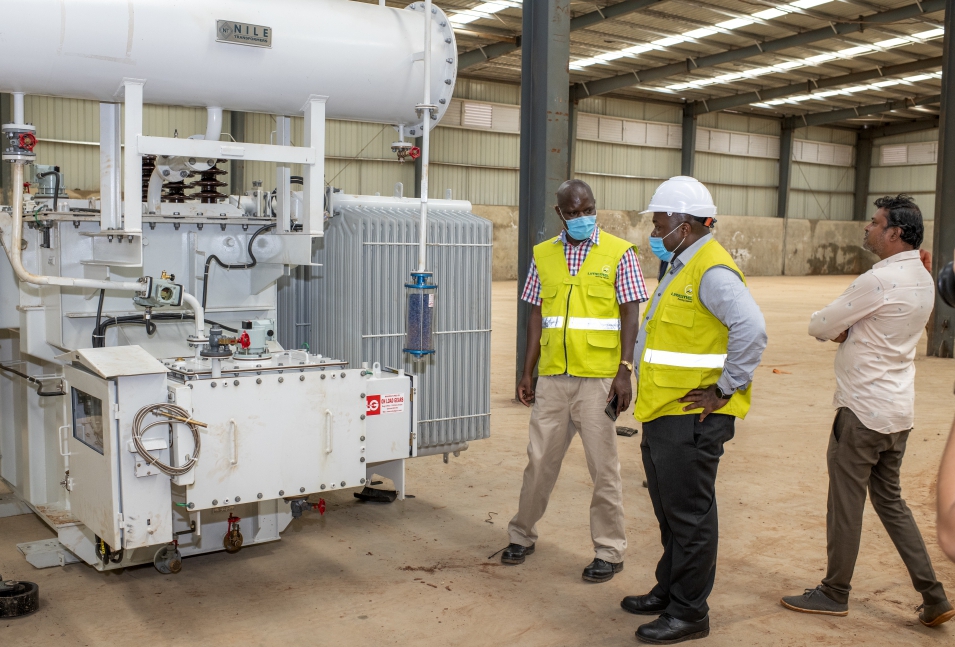Umeme MD Selestino Babungi inspecting one of the transformers at MMP industrial park in Njeru, Jinja (PHOTO/File) BUIKWE — Umeme’s powerline from Owen Falls in Jinja to MMP Industrial Park in Buikwe is up and now awaits the completion of the construction of factories in the park to plug them to the grid.
Four factory proprietors in the park say they will complete construction within one month, starting November.
The COVID-19 pandemic, which curtailed movements, delayed the transportation of many critical factory components.
With the resumption of international travel, it is a matter of time before their shipments arrive in the country.
To drive the factories’ machines, Umeme has invested $1.8 million in concrete poles, cables, and a switching station.
Selestino Babungi, the power distributor’s Managing Director, says Umeme is electrifying industrial parks across the country to support the government’s development plans.
The government established 22 industrial parks and roped in utilities like Umeme to put up infrastructure.
Government reasons that factories offer many job prospects, which unemployed Ugandans can take advantage of. Factories already taking shape at the new Industrial Park (PHOTO/Courtesy). According to the Uganda Bureau of Statistics (2017), close to one million Ugandans in absolute terms were looking for a job at the time.
A May 2019 Uganda Investment Authority statement indicated that the factories to be constructed in the park are Nile Transformers Limited, Nile Agro Ltd, Nile Aluminium Ltd, Nile Batteries Ltd, Nile Wheat Ltd, Auro Meera Paper Ltd, Modern Distillers Ltd, Modern Laminates Ltd, Nile GM Plastics Ltd, and Modern Rubber and Cable Ltd.
Others are Mayuge Sugar Ltd, Kamuli Sugar Ltd, G. M. Sugar Ltd, Modern Allied and Footwear Ltd, Modern Heavy Engineering Ltd, H. K. Industries Ltd, Bushenyi Cotton, C. N. Cotton Ltd, Lukonge Ginnery and Modern Textiles Ltd.
These factories, according to the Ministry of Finance, will create at least 5, 000 job opportunities. If unemployment is not addressed, the unemployed could either turn to petty crime to support themselves or join rebel outfits
